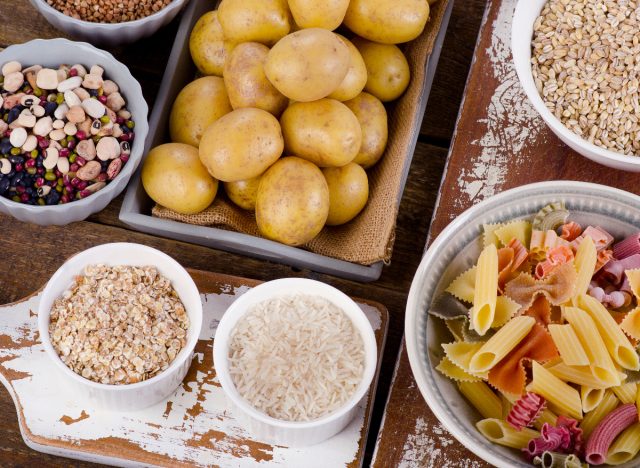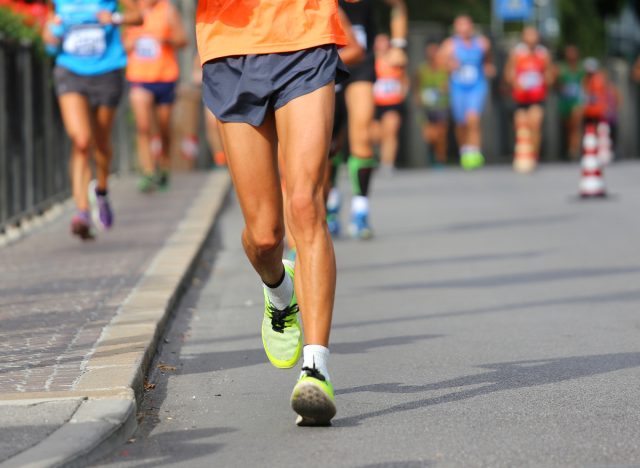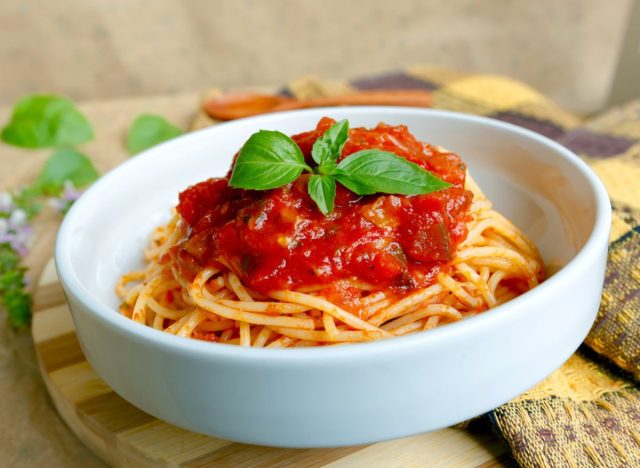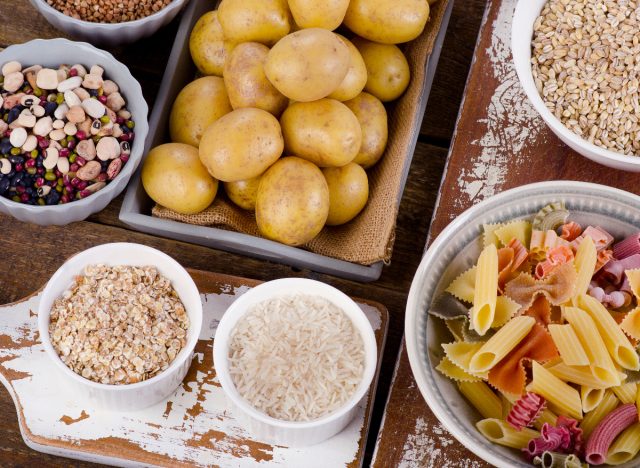Whether you’re a long-distance runner, cycler, swimmer, or an athlete looking to build endurance, you may be familiar with “carb loading.” This strategy enhances athletic performance by maximizing the energy stored in one’s muscles. By consuming more carbs in the days before a major training day or event, you can postpone fatigue, boost stamina, and potentially yield better results. We chatted with an expert who breaks down everything you need to know about carb loading and how you can get started.
How Does Carb Loading Work?


“Carb loading is a nutrition strategy that is used mainly by athletes to manipulate the amount of stored carbohydrates (glycogen) in the muscles to enhance performance,” explain The Nutrition Twins®, Tammy Lakatos Shames, RD, CDN, CFT, and Lyssie Lakatos, RD, CDN, CFT, who sit on our Medical Expert Board. “Typically, athletes increase their carbohydrates to an amount more than they usually would consume while simultaneously tapering back their exercise to allow for the body (muscles) to store more muscle energy, so they will have a lot of stored muscle energy when they go to a competition.”
What Types of Athletes and Physical Activities Benefit Most From Carb Loading?


Carb loading is beneficial for endurance-based sports and activities that require a lot of muscle energy. For instance, you may engage in carb loading before heading out on a long run, swim, or bike ride; participating in a marathon; or completing a triathlon. “In general, it’s any endurance athlete [who is] competing for more than 90 minutes,” The Nutrition Twins tell us.
How to Properly Carb Load


There are various types of carb loading, but The Nutrition Twins point out that all are completed in the days before a major event. If you carb load less than three days prior to your competition, this strategy will be ineffective.
“Start three to six days out from your competition. Each day, increase your carb intake, maxing out to 70% to 90% carbs, three days before your event,” The Nutrition Twins instruct. “Choose a mix of nutrient-rich carbs like sweet potatoes, regular potatoes, oatmeal, and whole grains, as well as pasta, rice, and bread. Your body will benefit from the fiber, which will help keep you regular the days before the competition, as well as from the antioxidants that will help to tame inflammation before, during, and after the race.”
Be sure to consume a solid combination of whole-grain carbs, bread, rice, etc., to avoid having too much fiber the day before your competition. In addition, stay away from sugar-packed or refined carbs that can wreak havoc on your blood sugar.










